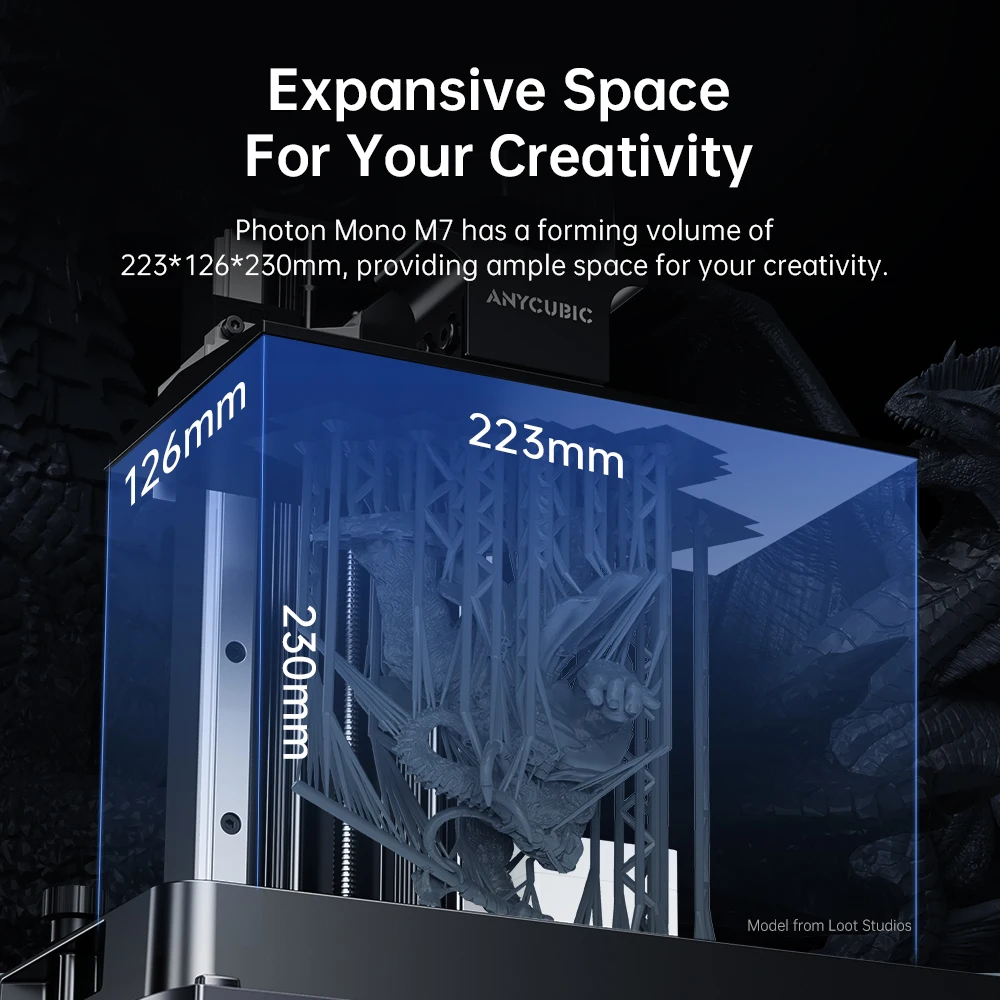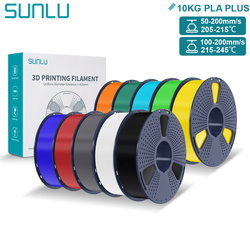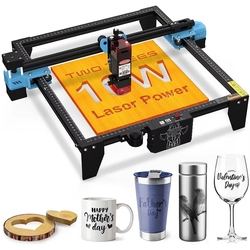Vs. Elegoo Saturn 3 Ultra
The Saturn 3 Ultra offers similar build volume but maxes out at 12K resolution compared to the M7's 14K. While both are excellent printers, the Photon Mono M7's higher resolution provides noticeably finer details, especially on small objects. The M7 also has a significant price advantage, particularly at its current discounted rate.
Vs. Creality Halot-Mage Pro
Creality's offering has a larger build volume but lower 8K resolution. For users needing maximum size, the Halot might be preferable, but for detail quality and print speed, the Photon Mono M7 is superior. The M7's LightTurbo 3.0 technology also provides more consistent light distribution across the build plate.
Vs. Higher-End Professional Printers
Compared to printers costing $800-$1200, the Photon Mono M7 holds its own remarkably well. While it may lack some advanced features like built-in filtration or touchscreen interfaces, its core printing capabilities match or exceed many machines in this higher price bracket.
The competitive analysis reveals that ANYCUBIC has created a product that punches significantly above its weight class. For users who prioritize print quality and speed over premium features, the value proposition is exceptionally strong. What's the real difference between 12K and 14K resolution?
The jump from 12K to 14K might seem incremental, but in practice, it means significantly smaller pixels (approximately 19×19μm vs 22×22μm). This translates to visibly smoother curves and finer details, especially noticeable on small objects like miniature facial features or jewelry details.
How difficult is resin printing compared to FDM?
Resin printing has a steeper learning curve due to post-processing requirements (washing and curing), but modern printers like the Photon Mono M7 have simplified the actual printing process significantly. The leveling-free design removes the most frustrating aspect for beginners.
What additional equipment do I need?
You'll need isopropyl alcohol for washing prints, a UV cure station (or sunlight), nitrile gloves, and safety glasses. Many users opt for a wash and cure station for convenience.
How loud is the printer during operation?
Remarkably quiet—most of the noise comes from the cooling fan, which is comparable to a desktop computer. It's suitable for home offices or living spaces without being disruptive.
What's the typical resin cost per print?
Depending on the model size and resin type, most prints cost between $0.50-$3.00 in resin. High-detail miniatures typically use $1.50-2.00 worth of resin—significantly cheaper than purchasing pre-printed models.
How often does the LCD screen need replacement?
With normal use, the LCD should last 1,000-2,000 printing hours. Replacement screens cost approximately $80-100 and are relatively easy to install yourself when needed.
Can I use third-party resins?
Yes, the printer works with any 405nm UV resin. However, to achieve the maximum 150mm/h speed, you'll need resins specifically formulated for high-speed printing.
Ready to Transform Your 3D Printing Experience?
Join 226 satisfied users who've rated this printer a perfect 5 stars. With the current 64% discount, this exceptional machine is available at just $275.32—a limited-time offer that won't last forever.
Free shipping available • 30-day return policy • Official ANYCUBIC warranty
Claim Your Discount Now Price increases to $764.76 soon - secure your savings today!
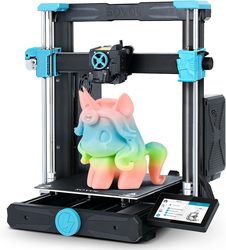
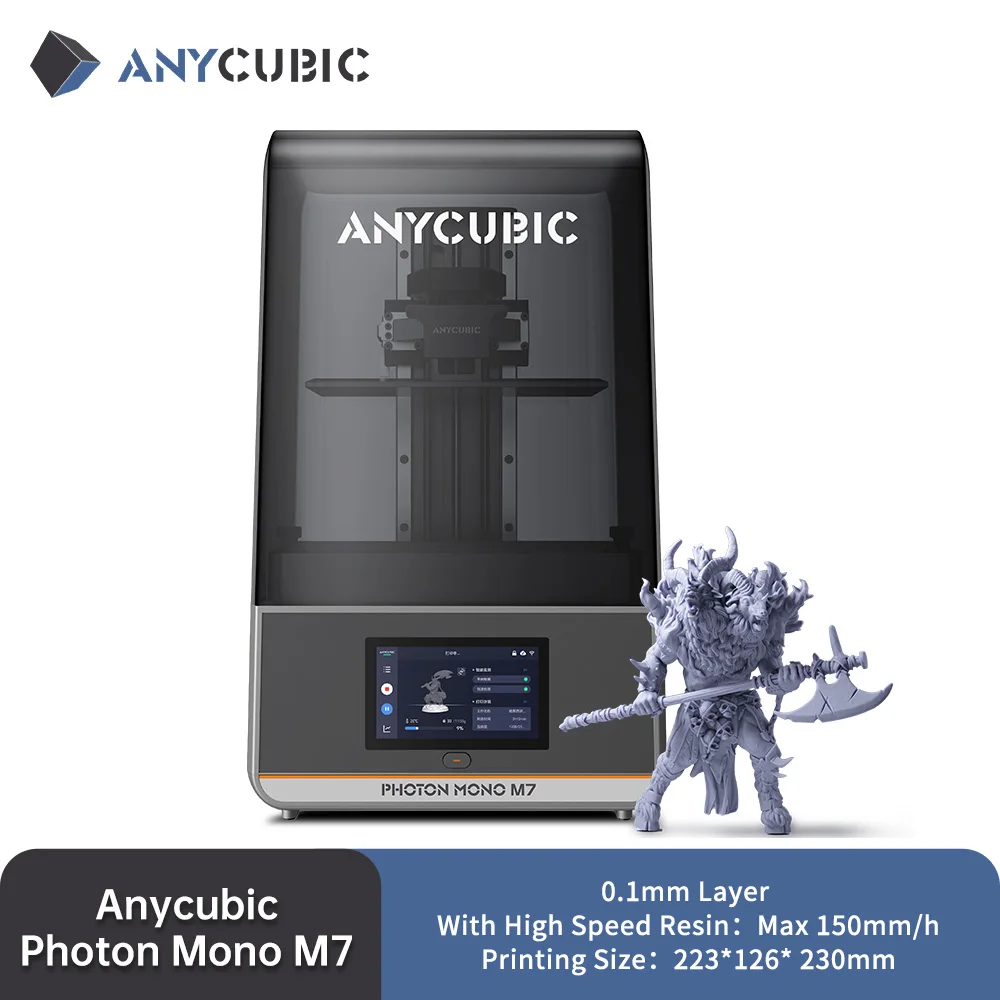 In the rapidly evolving world of resin 3D printing, finding a machine that balances professional-grade quality with accessibility has always been challenging—until now. The ANYCUBIC Photon Mono M7 AE Version represents a significant leap forward, offering what many seasoned makers would consider impossible just a year ago: 14K resolution printing at speeds reaching 150mm/hour, all at a price point that's surprisingly accessible. For creators who've struggled with the traditional trade-offs between speed, resolution, and cost, this machine feels like discovering a secret weapon. Having tested numerous resin printers across different price ranges, I can confidently say the Photon Mono M7 stands out not just for its technical specifications but for how those specs translate to real-world performance. Whether you're a tabletop gaming enthusiast creating intricate miniatures, a jewelry designer prototyping detailed pieces, or an engineer producing precise functional parts, this printer addresses the pain points that have plagued resin printing for years. The combination of its massive 64% discount from the original $764.76 price to the current $275.32 price point makes it particularly compelling for both beginners and experienced users looking to upgrade.
In the rapidly evolving world of resin 3D printing, finding a machine that balances professional-grade quality with accessibility has always been challenging—until now. The ANYCUBIC Photon Mono M7 AE Version represents a significant leap forward, offering what many seasoned makers would consider impossible just a year ago: 14K resolution printing at speeds reaching 150mm/hour, all at a price point that's surprisingly accessible. For creators who've struggled with the traditional trade-offs between speed, resolution, and cost, this machine feels like discovering a secret weapon. Having tested numerous resin printers across different price ranges, I can confidently say the Photon Mono M7 stands out not just for its technical specifications but for how those specs translate to real-world performance. Whether you're a tabletop gaming enthusiast creating intricate miniatures, a jewelry designer prototyping detailed pieces, or an engineer producing precise functional parts, this printer addresses the pain points that have plagued resin printing for years. The combination of its massive 64% discount from the original $764.76 price to the current $275.32 price point makes it particularly compelling for both beginners and experienced users looking to upgrade. 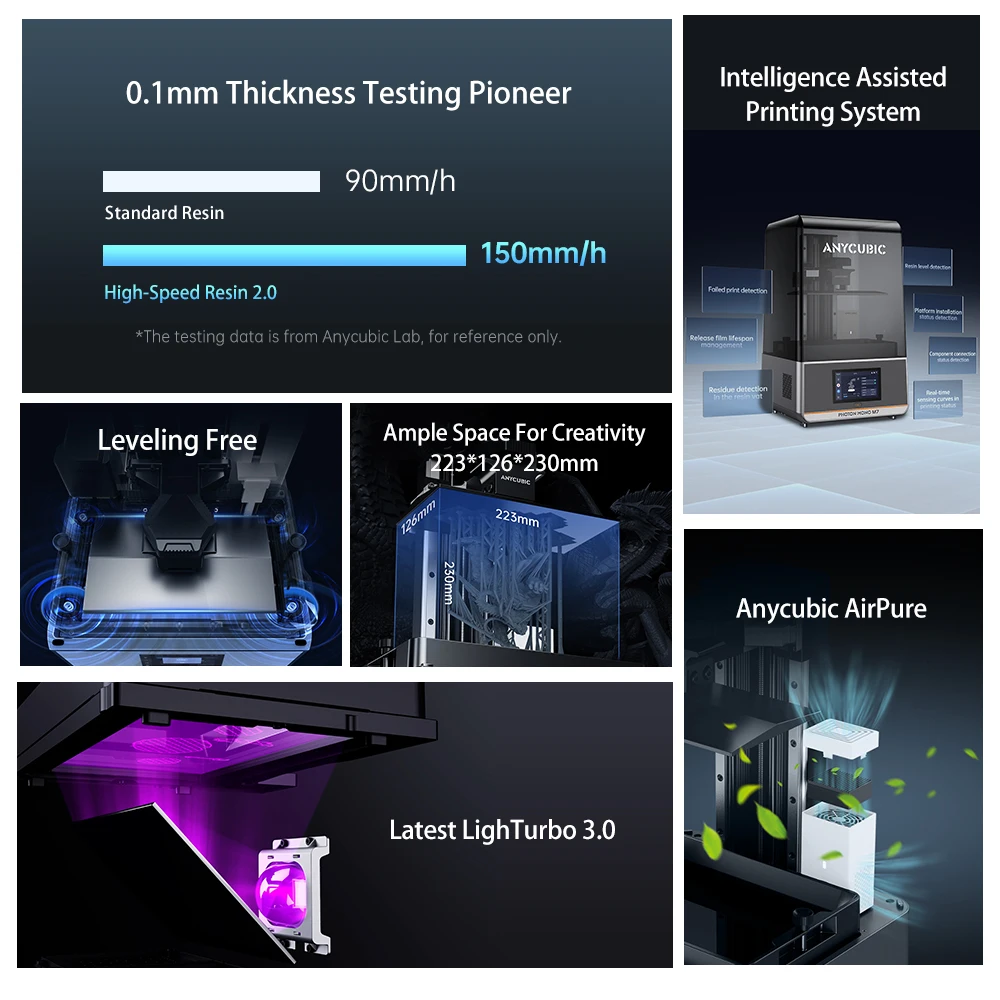
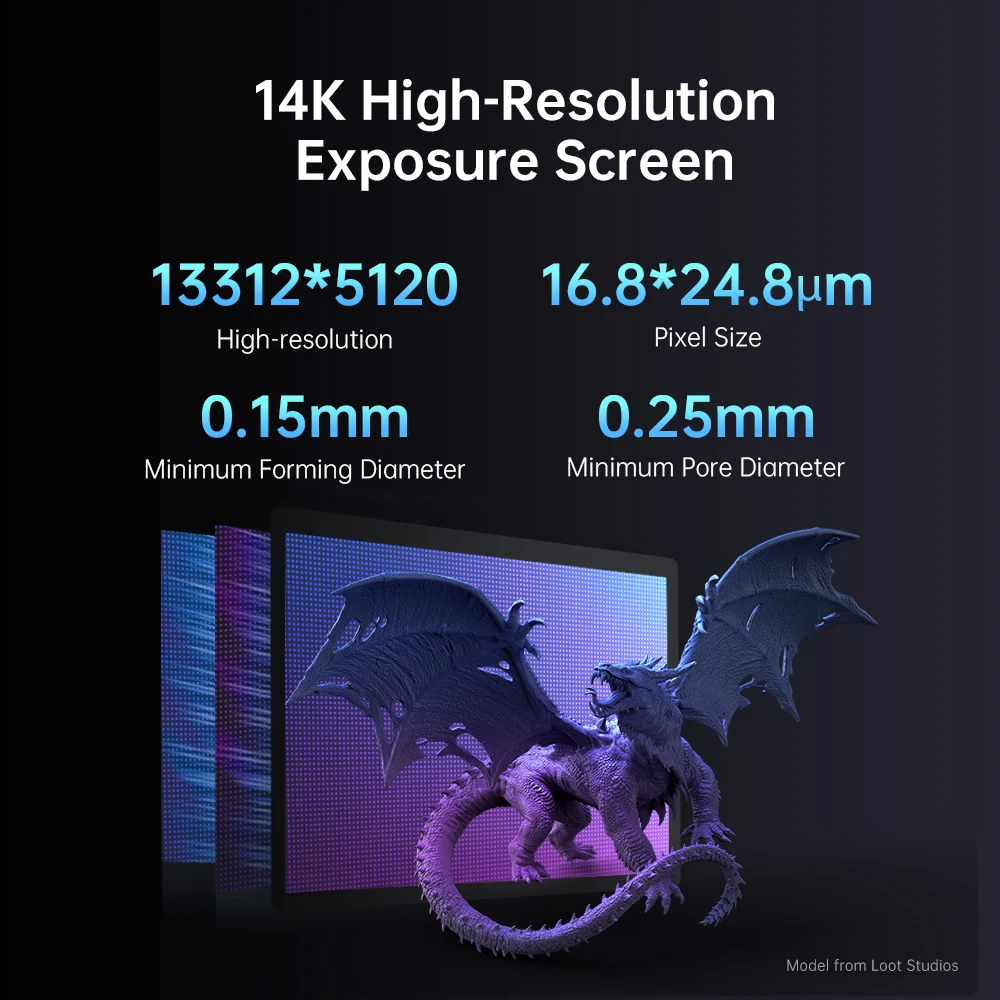 However, it's important to note that achieving these speeds requires using resins specifically formulated for high-speed printing. Standard resins will still work excellently but at more conventional speeds around 90mm/hour. The good news is that the high-speed resin market is expanding rapidly, with multiple manufacturers offering compatible options at increasingly competitive prices. The leveling-free design deserves special praise for eliminating one of the most frustrating aspects of resin printing. Traditional printers require meticulous leveling that often needs repetition after moving or maintenance. The Photon Mono M7's fixed plate system maintains perfect leveling indefinitely, meaning more time printing and less time calibrating—a benefit that both beginners and experienced users will appreciate.
However, it's important to note that achieving these speeds requires using resins specifically formulated for high-speed printing. Standard resins will still work excellently but at more conventional speeds around 90mm/hour. The good news is that the high-speed resin market is expanding rapidly, with multiple manufacturers offering compatible options at increasingly competitive prices. The leveling-free design deserves special praise for eliminating one of the most frustrating aspects of resin printing. Traditional printers require meticulous leveling that often needs repetition after moving or maintenance. The Photon Mono M7's fixed plate system maintains perfect leveling indefinitely, meaning more time printing and less time calibrating—a benefit that both beginners and experienced users will appreciate. 